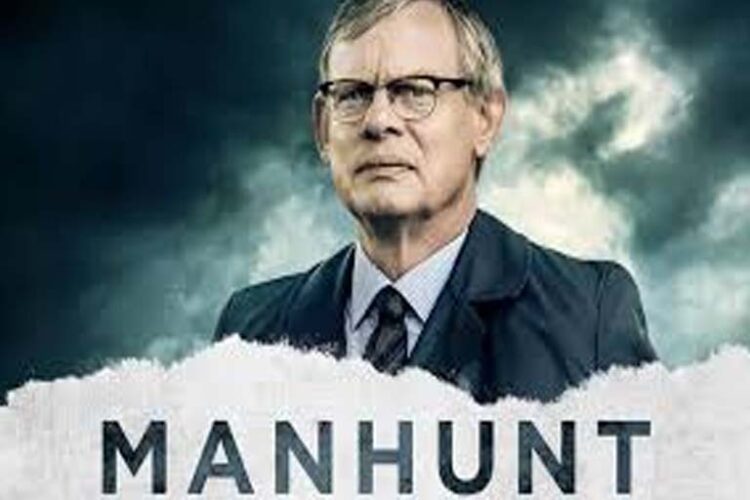Manhunt: A Gripping Chronicle of Detective Work
Manhunt is a British television drama that delves into the gritty reality of police work. Based on the true stories and memoirs of former Metropolitan Police Detective Chief Inspector Colin Sutton, the series offers a raw and unflinching portrayal of the challenges faced by law enforcement when investigating complex and high-profile crimes.
Beyond being a crime procedural, Manhunt is a character study, exploring the personal toll that such demanding work takes on those involved. By grounding the narrative in real-life events, the series offers a unique perspective on the criminal justice system, blurring the lines between fiction and reality.
The Real-Life Inspiration
At the heart of Manhunt is the compelling figure of DCI Colin Sutton, the real-life detective whose memoirs served as the foundation for the series. Sutton’s career was marked by his meticulous approach to investigation and his unwavering dedication to bringing criminals to justice. The series brings his stories to life, offering viewers a glimpse into the mind of a man driven by a relentless pursuit of truth.
By basing the drama on actual events, Manhunt adds a layer of authenticity that is both gripping and thought-provoking. It’s a testament to Sutton’s skill as a detective and his ability to transform complex investigations into compelling narratives. However, the decision to dramatize real-life tragedies also raises ethical questions about the portrayal of victims and their families. The series must tread carefully to respect the sensitivity of these real-life events while maintaining its dramatic impact.
Manhunt: A Detective Story
Manhunt is sort of a masterclass in procedural drama, delivering an engrossing and painstakingly detailed exploration of what detectives set out to crack, at times impossible. The series is based on the incidents of the Amélie Delagrange murder, which ultimately brought serial killer Levi Bellfield to justice.
It does a great job reconstructing just how rigorously and precisely evidence is collected, interviewing eyewitnesses, and finally piecing together the pieces of a crime. In a way, it portrays police officers involved in working tirelessly for justice to be brought to the victim and her family. Tension runs high as the investigation unfolds, drawing one into a game of cat and mouse between an elusive killer and a Police Department on its heels.
It also puts across the human cost of such relentless pursuit in Manhunt. One is taken through the emotional cost of being a detective—living through the horror of the crime and bearing the pressure to find the perpetrator. In that alone, this layer brings immense emotional depth to the drama.
Key Characters
Manhunt teases audiences with an exciting cast that brings the intricate world of policing to life. At the very centre of the series is DCI Colin Sutton, played masterfully by Martin Clunes. He is portrayed as a sharp and meticulous detective whose unflinching desire to solve cases equals the love and compassionate feeling he has toward the victims.
He is joined by dedicated officers working with him on the case. While one big part of the series remains focused on Sutton, these characters flesh out a feeling of the show, just how collaborative police work is.
It also brings into the light other victims and their families who are at the hub of the storytelling process. Their stories bring poignancy to the drama, and it would be impossible not to recognize in their pain and loss the human cost of crime.
Its fully realized characters make Manhunt something other than a procedure—for what the cases do personally to all of the people involved.
The Power of True Crime
Manhunt taps into something timeless in human fascination with true crime and delivers a raw, unflinching portrait of the dark side of humanity. By rooting these stories in real events, the show achieves an air of authenticity at once riveting and disturbing.
It raises some pertinent questions vis-à-vis the role of media in shaping public perceptions about crime and its potential effects on victims and their families. True crime, while being a very powerful tool to raise awareness of crime prevention and support for crime victims, needs to be approached sensitively and with respect.
Ultimately, Manhunt serves to remind us of the kind of courage and dedication it takes to protect citizens, as well as how crime devastates individuals and communities.
Conclusion
Manhunt is a powerful, thought-provoking drama that allows the audience a very rare peek into the world of police investigation. By rooting the series in real life, it manages to create an air of authenticity that makes the content riveting and unsettling at the same time.
But Manhunt is much more than a crime procedural, average in its way of peeling back to reveal the human cost of crime and just how difficult it is for people who work hard to put criminals behind bars. Where true crime needs to be dealt with sensitively, Manhunt acts as a reminder of why these stories should be told; it might open areas about the criminal justice system.




